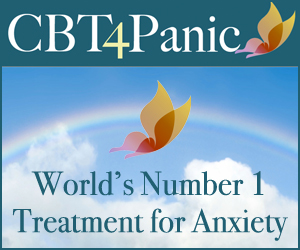How to cope with Social Anxiety
Coping with social anxiety can be challenging, but there are several strategies that can help. Here are some tips for managing social anxiety:
1. Gradual Exposure
- Start Small: Begin with easier, low-pressure social situations and gradually work your way up to more challenging ones. This could mean starting with a small group of close friends before attending larger gatherings.
- Set Achievable Goals: Create a list of social situations that make you anxious and rank them from least to most anxiety-provoking. Start with the least anxiety-inducing and gradually work your way up.
2. Preparation
- Plan Ahead: If you’re anxious about an upcoming social event, plan what you might say or do. This could include preparing small talk topics or practicing responses to common questions.
- Practice: Role-play social interactions with a trusted friend or therapist to build confidence and reduce anxiety.
3. Use Relaxation Techniques
- Breathing Exercises: Deep breathing can help calm your mind and body. Try inhaling deeply for four seconds, holding for four seconds, and exhaling for four seconds.
- Progressive Muscle Relaxation: Tense and then slowly relax each muscle group in your body, starting from your toes and working your way up.
4. Challenge Negative Thoughts
- Identify Negative Thoughts: Pay attention to the negative thoughts that arise in social situations. Write them down and evaluate their accuracy.
- Cognitive Restructuring: Replace negative thoughts with more realistic and positive ones. For example, instead of thinking “Everyone will judge me,” try “People are generally understanding and not as focused on me as I think.”
5. Focus on Others
- Shift Attention: Instead of focusing on your own anxiety, try to concentrate on the people around you. Listen actively to what they’re saying and engage in the conversation.
- Ask Questions: Showing interest in others can take the focus off your own anxiety and help build connections.
6. Practice Self-Compassion
- Be Kind to Yourself: Recognize that it’s okay to feel anxious and that you’re taking steps to manage it. Celebrate small victories and be patient with yourself.
- Avoid Self-Criticism: Replace self-critical thoughts with more compassionate ones. Remind yourself that everyone feels anxious at times and that it’s a normal human experience.
7. Build a Support System
- Find Supportive People: Surround yourself with friends, family, or support groups who understand your anxiety and can offer encouragement.
- Therapy: Consider talking to a therapist who specializes in social anxiety. Cognitive-behavioral therapy (CBT) is particularly effective for social anxiety.
8. Lifestyle Changes
- Exercise Regularly: Physical activity can reduce anxiety and improve mood.
- Healthy Diet: Eating a balanced diet and avoiding excessive caffeine and sugar can help stabilize your mood.
- Sleep Well: Aim for a consistent sleep schedule and ensure you’re getting enough rest.
9. Professional Help
- Medication: If your anxiety is severe, medication prescribed by a healthcare professional may help manage symptoms.
- Therapy: Cognitive-behavioral therapy (CBT) is particularly effective for treating social anxiety.
Implementing these strategies can help you manage social anxiety more effectively over time. Remember, progress may be gradual, and it’s important to be patient with yourself.



